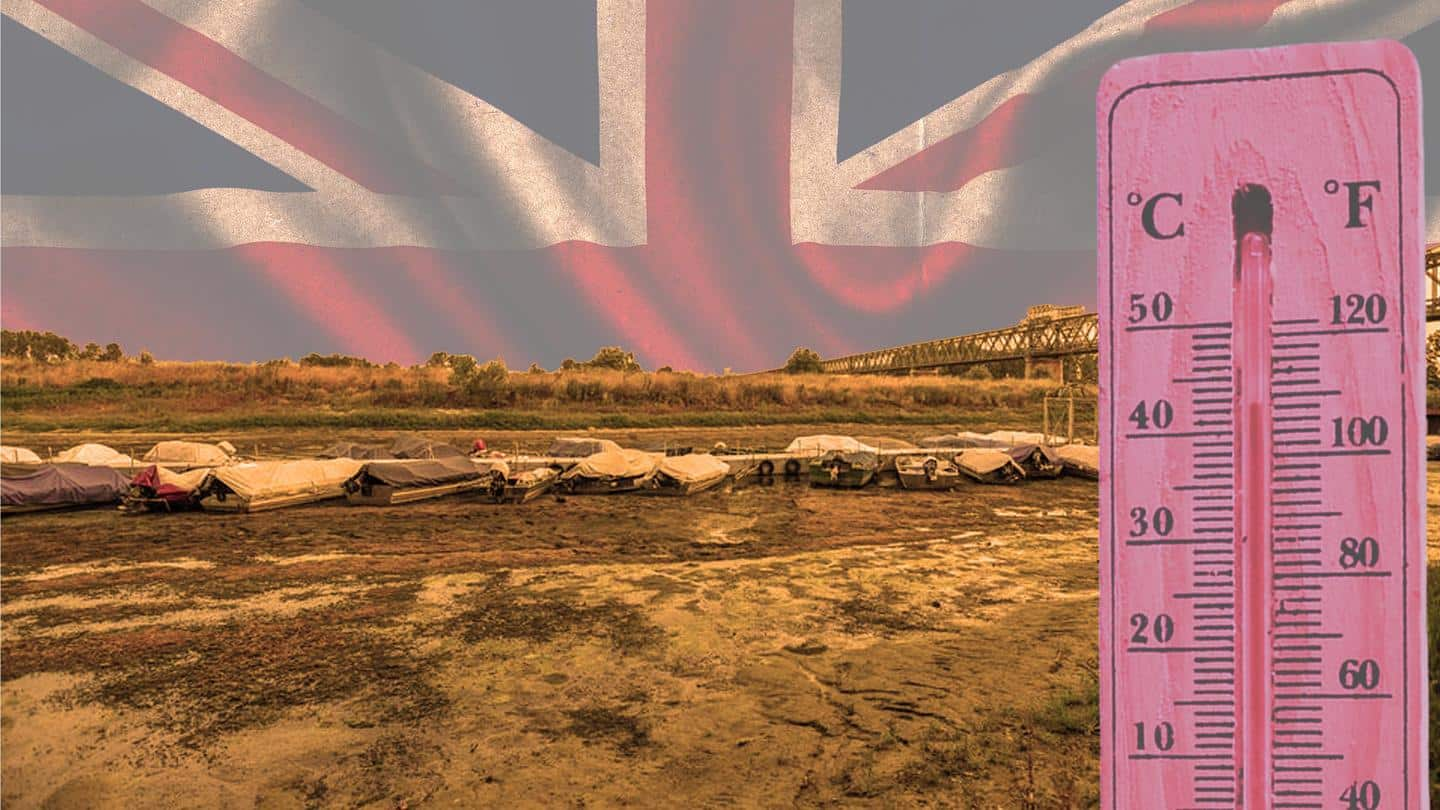
Thames River source driest ever, courtesy intense heatwave in UK
What's the story
Trouble is brewing up for England as the source of the River Thames has dried up further downstream than ever before amid a drought-like situation.
According to the Met Office, this July was the driest in England since 1935, with an average rainfall of 23.1 millimeters or 35% of the monthly normal.
Some sections of the country saw its driest July on record.
Context
Why does this story matter?
The prolonged heatwave is a global phenomenon these days due to climate change.
The World Meteorological Organization (WMO) had also issued a strong warning about the rising global temperature
And if the global temperature goes beyond the threshold of 1.5 °C above pre-industrial levels—set by the Paris Agreement aimed at combating climate change—the world may witness unimaginable natural disasters.
Details
Significant dry river beds never seen before
The River Thames flows 356 kilometers across southern England, passing from Gloucestershire through the center of London and Essex in the east before entering into the sea.
The river's source, a natural spring, typically runs dry in the summer. However, according to observations by conservationists, this year the dry riverbed extends noticeably farther downstream than in past years.
Official
Unprecedented heathwave and dryness
According to weather officials, the current heat wave in the United Kingdom is milder than the one witnessed in July.
Last month, temperatures hovered around 40 degrees Celsius, they said.
However, a protracted English summer with high heat and dryness is unprecedented and causes people hardship.
"I've never seen a summer like this before," said Ryan, a Whales resident.
Impact
Parks, green spaces worst affected
As per reports, parks and green spaces have suffered the most as water sources have depleted.
Meanwhile, water companies have announced temporary limitations on the use of hosepipes and sprinkler systems due to the heat and lack of rain.
Thames Water, which serves 15 million consumers in London and southeast England, said it planned to implement similar limitations.
Expert view
How did the experts respond?
"If we don't get rain in August, in fact, if we have a dry winter, then we could be in severe trouble come spring and next summer when we really don't have any water stores left whatsoever," said Climate expert and hydrologist at the University of Reading Hannah Cloke.
She emphasized on the importance of building infrastructure and policy on preventing further climate change.